The Basics: All About Cornish Game Hens
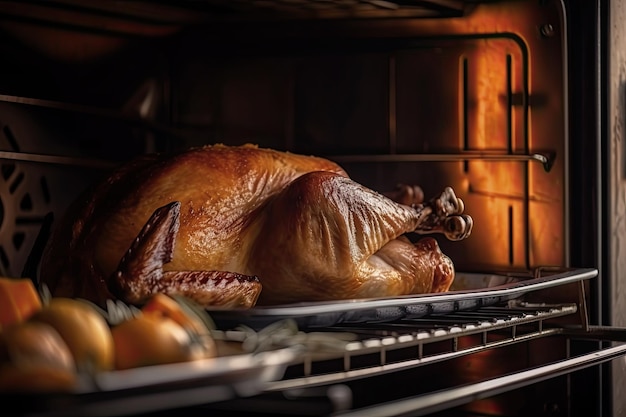
Before we jump into the cooking process, let's get acquainted with our feathered friends. Cornish game hens, or "Cornish crosses" as they're also known, are a hybrid breed specifically developed for their size and flavor. They're much smaller than your standard chicken, typically weighing between 1 and 2 pounds, making them the perfect portion for a single person or a couple.
What makes Cornish game hens so special? Their delicate, juicy meat and subtle flavor are a blank canvas for a wide range of seasonings and marinades. They're incredibly versatile and can be prepared in countless ways. But, as I mentioned, there are a few things we need to keep in mind to get the most out of these little beauties.
Why Cornish Game Hens Need Careful Cooking
The biggest challenge with Cornish game hens is their size. They cook much faster than a full-sized chicken because of their smaller size. This is both a good thing and a bad thing. It means they're quick to cook, but it also means they're very easy to overcook. An overcooked Cornish game hen becomes dry, tough, and honestly, a bit disappointing.
Another thing to remember is their delicate skin. You need to handle them carefully, and you'll need to use the right cooking method to get that perfect crispy skin without drying out the meat. This is where our oven roasting adventure truly begins.
(Part 2)
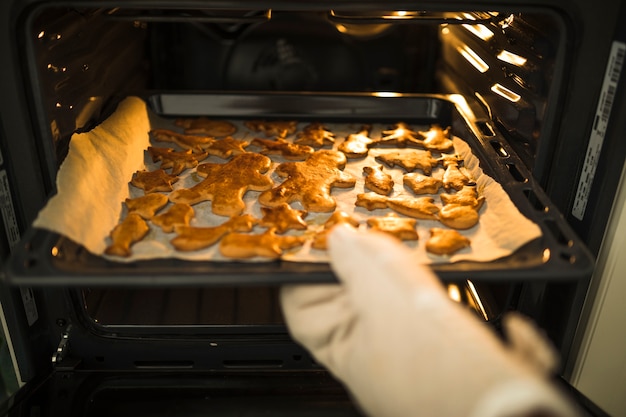
Oven Cooking: Setting the Stage for Success
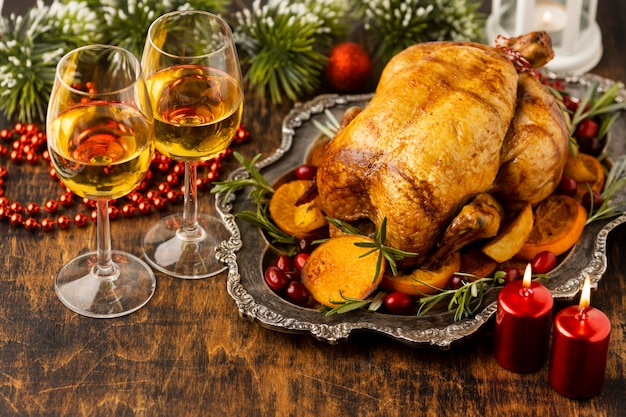
Oven roasting is the most popular method for Cornish game hens, and for good reason. It allows the bird to cook evenly, achieving that lovely golden-brown color we all crave. But, just like any other recipe, getting the oven set up right is crucial for success.
Preheating: Essential for Even Cooking
This is the golden rule: always, always preheat your oven. It's one of the most important steps for even cooking, and it'll make a significant difference in the outcome of your dish. I generally preheat my oven to 400°F (200°C). This higher temperature helps the bird cook quickly and evenly, and it also contributes to that glorious crispy skin.
Oven Rack Placement: The Secret to Crispy Skin
You might be thinking, "It's just a rack, what difference does it make?" But trust me, rack placement is essential. I always position my rack in the middle of the oven. This ensures even heat distribution, preventing the bottom of the bird from burning while the top stays juicy and tender. It's a simple trick that makes a big difference.
roasting pan: Choosing the Right Equipment
Now, let's talk about the roasting pan. A basic, non-stick roasting pan will do the trick. However, the most important thing is that it's big enough to hold your bird comfortably. Make sure there's a bit of space around it so the air can circulate freely. You want to ensure even heat distribution throughout the cooking process.
(Part 3)
The Prep Work: Getting Ready to Roast
We're almost ready to get those birds in the oven. But before we do, there's some prep work to be done. This is where we build the foundation for flavor and that coveted crispy skin.
Patting Dry: The Key to Crispy Skin
First, pat your Cornish game hen dry with paper towels. This is crucial. Why? Moisture and heat don't mix well when it comes to crispy skin. You want the skin as dry as possible so it can crisp up beautifully in the oven. The drier the skin, the crispier the result.
Brining: A Secret Weapon for Juicy Meat
Now, let's talk about brining. Brining is a simple technique that involves soaking your Cornish game hen in a salt water solution before cooking. It helps the bird retain moisture, resulting in incredibly juicy and tender meat.
Here's how to brine your Cornish game hen: Combine 1 cup of salt with 4 cups of water. Dissolve the salt in the water, then submerge your game hen in the brine. Let it soak for 30 minutes to an hour, depending on how much time you have. This step will make a world of difference in the juiciness of your finished dish.
Stuffing: Adding Extra Flavour
For extra flavor, you can stuff your Cornish game hen with a simple stuffing of herbs, vegetables, or even bread. I adore stuffing made with onions, celery, herbs, and a bit of bread. It adds so much depth to the bird's flavor.
Just be careful not to overstuff the bird. It should be stuffed loosely, not tightly packed. You want the stuffing to cook properly without creating a potential oven explosion!
(Part 4)
Seasoning: Elevating the Flavour
Now, it's time to get creative with your seasonings. The beauty of Cornish game hens is that they lend themselves to countless flavor combinations. It's really all about personal preference. But I've got a few tried-and-true methods that always hit the spot.
Simple and Classic: Salt, Pepper, and Herbs
You can't go wrong with a simple seasoning of salt, pepper, and fresh herbs. I love using a combination of rosemary, thyme, and sage. It's a classic blend that complements the delicate flavor of the game hen beautifully. Just a sprinkle of these aromatic herbs adds a layer of complexity to the dish.
Lemon and Garlic: A Zesty Twist
For a bright, zesty twist, try rubbing the Cornish game hen with a mixture of lemon zest, garlic, and olive oil. It adds a vibrant and flavorful touch to the bird. Tuck a few slices of lemon inside the cavity for extra flavor. This combination is a classic for a reason.
Spicy Heat: Cayenne Pepper or Chili Flakes
If you enjoy a little heat, a sprinkle of cayenne pepper or chili flakes will give your Cornish game hen a spicy kick. Just be careful not to overdo it, unless you're a seasoned spice enthusiast. A little heat can go a long way, so start with a pinch and adjust to your taste.
(Part 5)
Cooking Time: Mastering the Art of Timing
Alright, now we're getting to the heart of the matter: cooking time. This is where things can get tricky, but don't worry, I'm here to guide you.
Understanding the Factors
The cooking time for a Cornish game hen depends on a few factors:
- The size of the bird: Smaller birds will cook faster than larger ones.
- The temperature of your oven: Higher temperatures will result in faster cooking times.
- Whether you're stuffing the bird: Stuffing will increase the cooking time slightly.
General Guidelines for Cooking Time
As a general rule, a Cornish game hen will take about 40-45 minutes to cook at 400°F (200°C). But remember, always check the internal temperature to ensure it's cooked through.
The Internal Temperature Test
The most reliable way to determine if your Cornish game hen is cooked is by using a meat thermometer. You want the internal temperature of the thickest part of the thigh to reach 165°F (74°C). This ensures that the bird is cooked through and safe to eat.
(Part 6)
Roasting Technique: Achieving Crispy Skin and Juicy Meat
Now, let's talk about the roasting technique itself. It's more than just putting the bird in the oven and hoping for the best. There are some techniques that can make a huge difference in the final outcome.
Basting: Keeping the Bird Moist
Basting is essential for keeping the bird moist and tender. It involves spooning pan juices over the bird during cooking. I usually baste my bird every 15-20 minutes, but you can adjust this based on how much moisture you see in the pan. Basting helps to distribute the heat evenly and prevents the bird from drying out.
roasting time: A Balance of Time and Temperature
As I mentioned before, the cooking time for a Cornish game hen will vary. But I generally roast mine for about 40-45 minutes at 400°F (200°C). However, always check the internal temperature using a meat thermometer to ensure it's cooked through.
Resting: Allowing the Juices to Redistribute
When your Cornish game hen is cooked, don't carve it up right away. Let it rest for 10-15 minutes before carving. This allows the juices to redistribute, resulting in a more succulent and flavorful bird. It's a simple step, but it makes a big difference in the tenderness of the meat.
(Part 7)
Variations: Putting Your Own Spin on the Dish
Don't be afraid to get creative with your Cornish game hen. There are so many delicious ways to prepare it, and you can really personalize it to your taste.
Lemon-Herb Marinade
For a vibrant and flavorful twist, marinate your Cornish game hen in a lemon-herb marinade. Simply combine olive oil, lemon juice, garlic, salt, pepper, and your favorite herbs like rosemary, thyme, or oregano. Marinate the bird for at least an hour, or even overnight, for maximum flavor. The longer the marinade sits, the more the flavors will penetrate the meat.
Honey-Glazed Cornish Game Hen
If you like things sweet and savory, try glazing your Cornish game hen with a honey glaze. Mix honey, soy sauce, ginger, and garlic together and brush the glaze over the bird during the last 15 minutes of cooking. The glaze will caramelize in the oven, creating a beautiful crust and adding a touch of sweetness to the dish.
Spiced Cornish Game Hen
For a bold flavor, try seasoning your Cornish game hen with a spice blend. I like to use a mixture of cumin, coriander, paprika, and cayenne pepper. It adds a wonderful warmth and depth to the dish. You can also experiment with other spice blends like curry powder, garam masala, or smoked paprika.
(Part 8)
Serving Suggestions: Creating a Delicious Meal
Now that your Cornish game hen is cooked to perfection, it's time to serve it up. I have a few favorite side dishes that complement this dish beautifully.
Roasted Vegetables
Roasted vegetables are a classic pairing for Cornish game hen. Try roasting root vegetables like carrots, potatoes, and parsnips, or use seasonal vegetables like asparagus, broccoli, or Brussels sprouts. Roasting brings out the natural sweetness of the vegetables, creating a delicious harmony with the savory game hen.
Wild rice pilaf
A wild rice pilaf is a simple and flavorful side dish that complements the delicate flavor of the Cornish game hen. You can find pre-made wild rice pilaf mixes at most grocery stores, or make your own with wild rice, broth, and your favorite aromatics. It adds a satisfying nutty flavor to the meal.
Simple Green Salad
A fresh green salad adds a touch of lightness to the meal. I like to keep it simple with romaine lettuce, cucumber, and a vinaigrette dressing. You can also get creative with other leafy greens and add in seasonal fruits or nuts for added texture and flavor.
FAQs: Your Cornish Game Hen Questions Answered
I know you might have some questions about cooking cornish game hens, so here are some FAQs to help you out.
What if my Cornish game hen is frozen?
If your Cornish game hen is frozen, thaw it in the refrigerator overnight before cooking. Do not thaw it at room temperature, as this can increase the risk of bacterial growth. It's always best to err on the side of caution when handling raw poultry.
Can I cook a Cornish game hen in a slow cooker?
Yes, you can cook a Cornish game hen in a slow cooker. Simply place the bird in the slow cooker, season it as desired, and cook on low for 6-8 hours. You can also add a cup of broth to the slow cooker to keep the bird moist. This is a great option if you're looking for a hands-off cooking method.
How do I store leftovers?
Store leftover Cornish game hen in an airtight container in the refrigerator for up to 3 days. You can reheat it in the oven, microwave, or on the stovetop. Leftover Cornish game hen is great for making chicken salad sandwiches or adding to soups and stews.
What if my Cornish game hen is overcooked?
If your Cornish game hen is overcooked, it will be dry and tough. There's not much you can do to salvage it, but you can try serving it with a sauce or gravy to add moisture. To prevent overcooking, always check the internal temperature using a meat thermometer.
What are some creative ways to use leftover Cornish game hen?
You can use leftover Cornish game hen in a variety of dishes. Try making a chicken salad sandwich, adding it to a soup or stew, or making chicken tacos. You can also shred the meat and use it in a pasta dish or a salad. The possibilities are endless!
So there you have it, my friends! My guide to cooking the perfect cornish game hen. With a bit of practice, you'll be whipping up these tasty birds like a pro in no time. So get your oven preheated, gather your ingredients, and get ready to impress everyone with your culinary skills.
Everyone is watching

Perfect Rice Every Time: The Ultimate Guide to Cooking Rice
Cooking TipsAs a self-proclaimed foodie, I've always been a bit obsessed with rice. It's the foundation of countless cuisi...

Ultimate Guide to Cooking the Perfect Thanksgiving Turkey
Cooking TipsThanksgiving. Just the word conjures up images of overflowing tables laden with delicious food, the scent of r...

The Ultimate Guide to Cooking Asparagus: Tips, Techniques, and Recipes
Cooking TipsAsparagus. The mere mention of this spring delicacy conjures up images of vibrant green spears, crisp and burs...
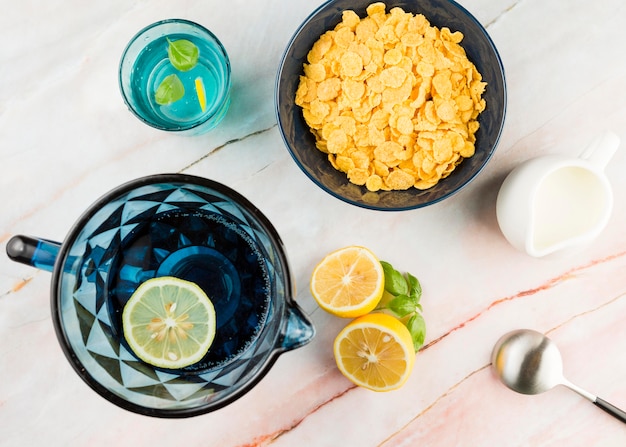
Can You Cook Spaghetti with Gasoline? (The Shocking Truth)
Cooking TipsWe've all seen those crazy internet trends. You know, the ones that make you wonder, "Did someone actually try...
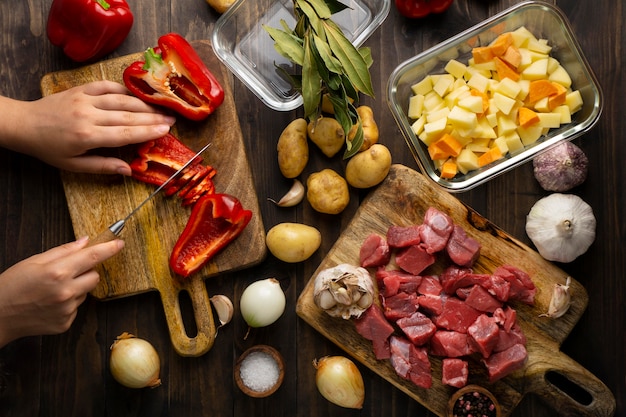
Chorizo and Eggs Recipe: The Ultimate Guide
Cooking TipsRight, let’s talk about chorizo and eggs. You know, that classic Spanish dish that's always a winner. It's th...
